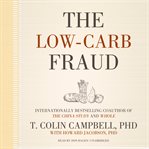Review by Choice Review
Biological anthropologist Stephen Le (Visiting Professor in the Department of Biology at the Univ. of Ottawa) shows us that the food we eat, our biological evolution, and our human culture have separately drifted across the span of our ten million years of existence. At every turn, Le stresses that today's eating habits and modern lifestyle are killing us and are not sustainable. Le conveniently blames Western influences for the rise in cancer, heart disease, diabetes, and obesity all around the world--identifying these as "Western diseases." In a style reminiscent of Anthony Bourdain and Michael Pollan, Le travels to Vietnam, China, Kenya, India, Australia, Canada, and back to the United States, to illustrate people engaging in traditional and modern forms of agriculture, cooking, and consumption, while consciously striving for sustainable, healthy living. Le provides ample citations to establish his point that humans should revert back to the diets and physical activity levels of our ancient ancestors; he also offers a top ten list of recommendations on ways to strive towards these goals. Easier said than done! Appropriate for public library collections. Summing Up: Highly recommended. General readers. --Rachel S. Wexelbaum, Saint Cloud State University
Copyright American Library Association, used with permission.
Review by Booklist Review
When it comes to food, early humans knew best, according to Le, a biological anthropologist. Modern diets, high in processed white as snow rice and other carbohydrates, increase the risk of diseases of western civilization, such as obesity and type 2 diabetes. Le travels to and dines in Kenya, Australia, and Vietnam, his parents' birthplace, where he eats a high-protein centipede. He carefully distinguishes between short-term and long-term health benefits of different diets. High-dairy, high-meat diets improve muscle mass and may help elderly people be less frail, but they're also more likely to lead to shorter lives. By contrast, Dean Ornish's low-meat, low-fat diet seems better for longevity but is tricky to sustain. Ideally, people should keep moving, consume less meat and dairy at young ages, and eat like their own ancestors. For example, Inuit children are genetically adapted to be dairy free, so they can wind up with dangerous levels of calcium in their blood (and potential kidney damage) if they switch to North American-style diets. Le mixes advice, personal anecdotes, and medical science in this fascinating food-for-thought narrative.--Springen, Karen Copyright 2016 Booklist
From Booklist, Copyright (c) American Library Association. Used with permission.
Review by Library Journal Review
Le (biology, Univ. of Ottawa) believes that adverse health conditions have arisen from changes that have made our food unlike what our ancestors ate. He uses an evolutionary biology perspective to chart alterations in dietary practices from primitive times to the present day in an attempt to understand the best type of diet for us to follow. Le begins by investigating specific categories of food, such as insects, fruit, meat, fish, plants, alcohol, and milk. He also postulates on the causes of nutritional deficiencies and the prevalence of food allergies in modern times. Summations of scientific articles are used as evidence throughout, although detailed analysis is lacking. The account is interspersed with anecdotes from Le's travels, in which he meets entrepreneurs and foodies who are passionate about traditional food and sustainability. The book ends with the author's recommendations for eating well, which include consuming the traditional foods one's ancestors enjoyed, sustainable eating, moderate exercise, safe germ and sun exposure, and cooking at low heat. VERDICT An intriguing viewpoint on how dietary practices have changed over time, but further research is needed to support some of Le's healthy living recommendations-Rebekah Kati, Durham, NC © Copyright 2015. Library Journals LLC, a wholly owned subsidiary of Media Source, Inc. No redistribution permitted.
(c) Copyright Library Journals LLC, a wholly owned subsidiary of Media Source, Inc. No redistribution permitted.
Review by Kirkus Book Review
A biology professor traverses the globe to explore the evolution of food. In this accessible debut, Le offers a nimble hybrid that is equal parts travel memoir and informed speculation about the biology of human nutrition. The author, with roots in Vietnam and Canada, also explores how different cultures approach food in support of his thesis that straying from one's ancestral diets is a leading cause of modern disease. It's a surprisingly cleareyed approach that demonstrates Le's awareness of trendy diets like the paleo approach while also allowing him to dig into the science behind the effects that eating has on our lives. Starting off in Vietnam to explore the now-exotic inclusion of insects in one's diet, the author traveled the world to explore the history of meat, fish, fruits, and starches in far-flung locales. It's not always prettythe chapter "A Truce Among Thieves" delves uncomfortably into the weird world of parasites and the drawbacks of modern hygiene on our digestive and immune systems. In an interesting diversion for what is nominally a scientific inquiry, Le doesn't confine what he learns to a restrictive definition for health, as he notes in his chapter on meat. "In other words, the robustness of meat-eaters and the long lives of meat-abstainers are two sides of the same biological coin," he writes. "It all depends on how you define healthy. Does healthy mean being in a great mood and being fertile and stronger at a younger age, or does healthy mean delaying cancer for a couple of years and hanging out with your great-grandchildren?" This line of inquiry continues in the book's penultimate chapter, "The Future of Food," in which Le chronicles his discussions with proponents of different diets and lifestyles, none of whom can agree on a best approach. The book's conclusions about what to eat and drink are common sense, but the journey Le takes to get us there is worth the cover price. Copyright Kirkus Reviews, used with permission.
Copyright (c) Kirkus Reviews, used with permission.

